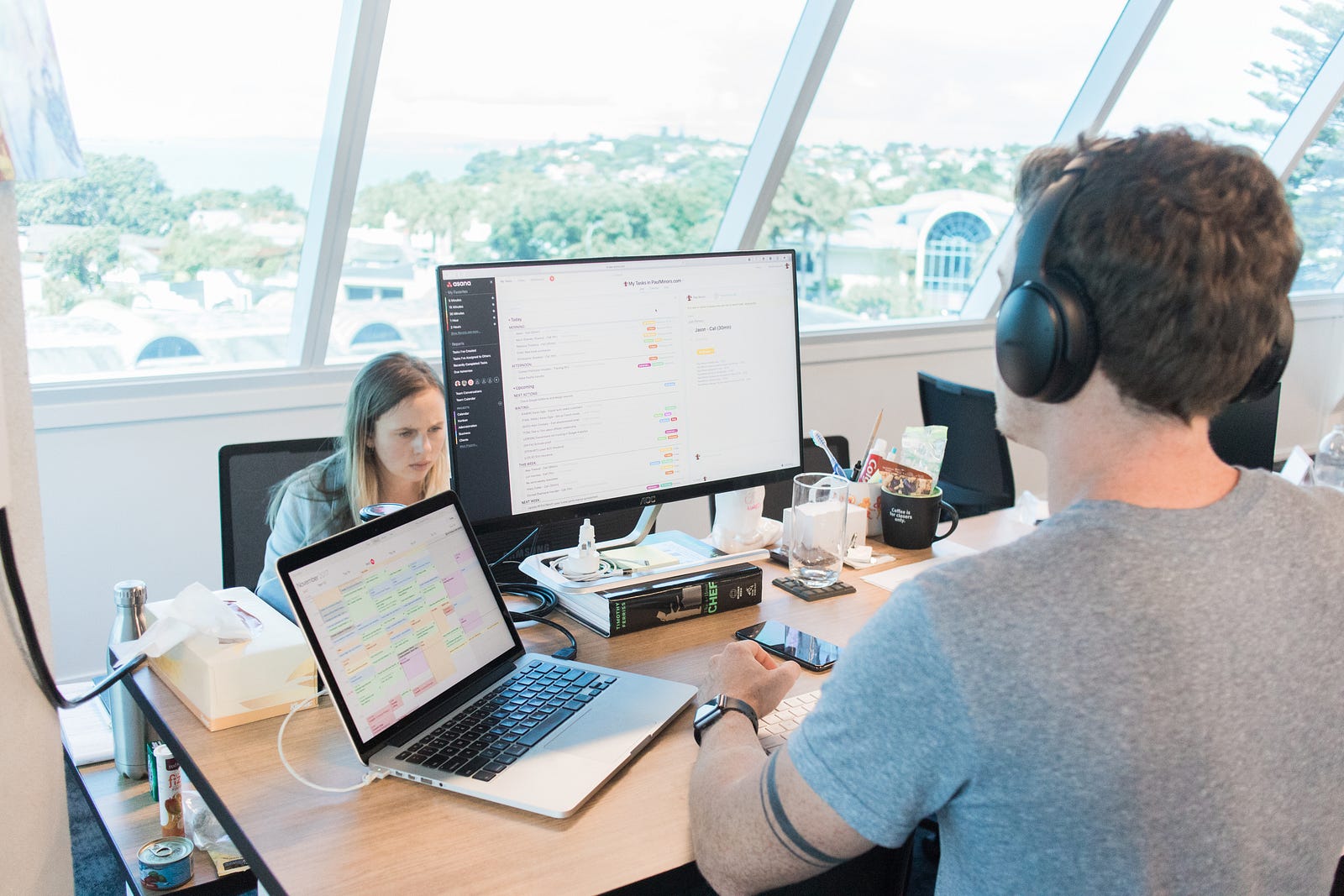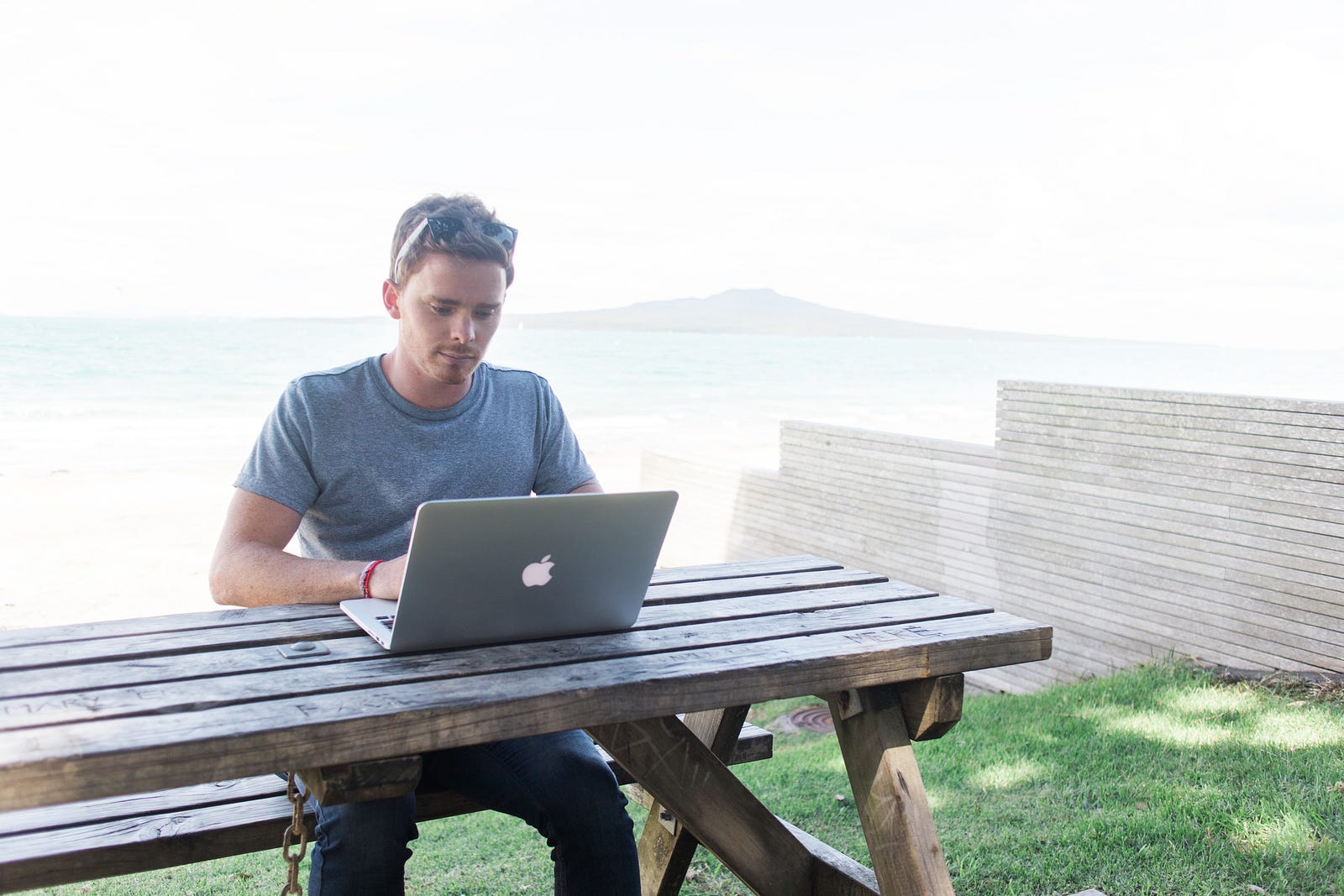Interviews
Interview with Mailbutler’s UX/UI designers Magda and Yadira
We spoke with Mailbutler UX/UI designers Magda and Yadira to find out more about the process of implementing the Tags feature.
We talk to Paul Minors about his views on remote working vs 9 to 5, must-have apps and tools as a business productivity consultant, and common productivity mistakes.
James has seven years' experience as a Content Marketer, bylines on Left Foot Forward, Submittable, and INOMICS, and a Master's in History. In his free time he likes to read, play guitar, and write for his personal blog.
Paul Minors is a freelance productivity consultant working remotely all the way in New Zealand. Paul offers great actionable tips for productivity, business and time management on his website and podcast series.
In the 5th edition of Workflow, Paul shares his view on remote working vs 9-to-5, must-have apps & tools as a business productivity consultant, common productivity mistakes…and more.

That’s a great question. I really like my business because I get to do a lot of different things: blog, podcast, affiliate marketing. I guess from an income stand point, my 80 would be consulting.
The 20 would be all the rest of it: Things like product sales, affiliate marketing and sponsorships.
But I’m trying to make it 50/50 so I can spend less time on consulting. Not that I don’t enjoy it, but I would also like to have my income from the other channels. But for now, consulting is definitely the 80 for me.
I’m not a fan of 9 to 5 — I don’t like the concept of coming into the office at 8 o clock, you sit there and do work — until 5, even though you might already be done for the day and there’s nothing left to do.
I find the whole work for work sake mentality to be very inefficient. But I don’t think it will completely disappear.
A lot of Gen X and millennials want to work for themselves as they value working independently with flexible locations. I think there will be a continuous shift of people switching to freelancing and consulting.
There’s an advantage for companies in hiring freelancers and contract workers.
Often with freelancers on board in projects, you can get someone that’s highly skilled to come in and work with you for a relatively short period of time, which often works out to be more cost effective when you consider extra costs like insurance.
Planning really starts the week before.
On Friday afternoon I’ll look at my tasks for the upcoming week and what I need to do, and block out time on my calendar for some of the big things I need to do.
I’m a big fan of time blocking technique where you actually have events set on the calendar for specific tasks.
And on a daily basis — I have a pretty standard routine.
I get up, shower, have breakfast and go to work — as my clients are mostly in the states, I’m often working earlier. I’ll usually have a few hours of calls in the morning and do my emails as soon as I can. Sometimes I’ll get it done before my first call.
I like to get into my inbox and deal with each message — this might be putting it on my task list, putting in on my calendar, making a note notes; all the types of information that Mailbutler is great for.
In between the call times I’m usually working on Pipedrive, where I keep track of when and what clients to follow up. That’s what I do in between my time.

I have lunch around noon. My wife Hayley and I work in a coworking space which is right next to the beach (where we can take a walk during lunch!)
In the afternoon I’ll sometimes have another call and do some project work. I’m fortunate to finish around 4pm, get home and do cross-fitting. After that it’s just a relaxed evening really!
One of the benefits with working remotely is that you’re not losing commute time. You’re not losing hours in the day to drive to the office. I also find in-person meetings tend to run over time —with digital meetings and video conferencing, it usually ends on time.
I have most of my iPhone notifications turned off.
I don’t receive email notifications on my phone, pretty much all I get are text messages, phone calls (which I don’t get a lot throughout the day anyway) and the occasional app notifications. Same thing for my computer.
I think it’s pretty important to customize your notifications and be active about turning off things you don’t want to get notified of.
In terms of other kinds of distraction: this is why I think time blocking helps.
When you put time on your calendar for a task, it helps you stay focused because you’ve set a clear purpose during that time.
Treat any task like an appointment to a meeting with another person: you’ve made the commitment to be there and not be distracted.
When you time block for yourself, you’re making a commitment. Having that respect and the right sense of purpose will help you to put your distractions on one side. Especially when you’re working for yourself — you’re the one with bills to pay :)

For email I’m using Apple Mail with Mailbutler. I have both my iCloud and Gmail accounts syncing to Mail. For task management, we use Asana. Pipedrive is my CRM for clients.
We use Calendly to easily book meeting times with clients, and Hazel for documentation and to organize my files. I track my on-screen activities with Timing and get a sense of where my time is spent.
I also use Zapier to connect all these apps together: when someone books an introductory call with me for a potential client, it creates a new entry to Pipedrive and makes sure to create a system for me for future follow-ups and appointments.
When existing clients book a call with me, that triggers different automation for Asana.
To avoid being overbooked — say if someone scheduled a 2-hour appointment — Zapier will also put in buffer time before and after the meeting in my calendar so I make sure everything can be on time.
When you time block for yourself, you’re making a commitment. Having that respect and the right sense of purpose will help you to put your distractions on one side.
So much of productivity is just about the principles that you apply — the tools don’t really matter.
People get distracted by different tools, hacks, and all the articles, instead of just focusing on having good habits and routines.
There’s a lot of email, task management tools and they’re all pretty similar. While I care about what I’m using, after I’ve picked my tools, I can’t be bothered to switch.
Apple Mail and Mailbutler work really great together for me right now. Unless you’ve found a way to make emails 10 times more efficient, there’s really no point switching: the cost of testing a new app and switching is not worth it.
The key to productivity is to get a lot of sleep, eat well, exercise! If you don’t look after yourself, all these tools and tips will not help.
Try and be disciplined with your productivity routine: get things onto your task list, calendar. Get into the work right away.
If you’re always worrying about techniques and tools to use, you’re getting distracted by productivity itself instead of being productive.
So much of productivity is just about the principles that you apply — the tools don’t really matter.

I think it does differ a bit with each client that I coach. There might be some tools that are important for my workflow that won’t be useful for you.
We all have different preferences.
I do emails the first thing in the day, but some people like to do that later in the day… things like that. But there are some fundamental rules that I think are universal — like how different tools fit into each other in a system.
Recommended reading: How to easily drive conversions with email signature marketing
For example, email is where information comes in, which populates your calendar, your task list… so you shouldn’t be using your emails as a to-do list. It’s about having clear boundaries of why you’re using each app.
It all depends on your needs and preferences on how you want to customize these principles to fit your workflow.
I think fundamentally my views have remained the same. Productivity is my vehicle and the means to an end. There’s no point in being productive, getting more done and doing more unless you’re actually achieving a goal.
Whether that’s building a meaningful business, helping people, or it’s freeing up your time to spend more time with your family. I still believe in being productive to serve a higher purpose.
I haven’t looked into my messages this morning and I’ve got 26 in there. I’ve got a separate folder for subscribers’ emails, and also my wife Hayley helping me with some of the replies. So realistically I would say 40.
Usually, it’s an hour that I spend in my inbox in the morning: first half of my hour is going through incoming emails, and the second half is doing all my follow-ups with existing clients and prospects.
In total I spend a little less than 2 hours of my day on emails.
I follow a pretty simple rule — when I get an email and if there’s no further action I’ll archive it. Or I’ll put it on my to-do list and come back to it later (and I’ll then archive the message as it’s been dealt with and I don’t need the email anymore).
A lot of people leave the email in the inbox after they’ve replied to it, but I normally archive it afterwards, as I trust the other person would get back to me. If I want to make sure I get a reply (maybe in a few days' time) I’ll then snooze the message and follow-up if there’s no response.
I sort and deal with each message as I go. The only folder we have a ‘reply’ folder for subscriber emails (which we also follow the same principle — once it’s dealt the email gets moved about of the folder).
I use Snooze and Tracking features a lot, especially for sales, as knowing someone has read my proposal is really important.
I also like the Notes feature a lot — when I’m going through my email I can drop notes within the message — this is something that I haven’t seen before from other email applications.
It’s really useful, as I can write a few lines about my response, thoughts or questions for the next call.
I don’t think it’s going away soon. From a marketing perspective, it’s a more intimate way of contact compared to social media.
I think there’s often a stigma around emails: ‘I hate emails’, ‘I get so many messages’, ‘email is so horrible’…you often hear these comments only from people that are struggling with their inboxes. I actually like emails and I enjoy going through them.
For me it’s simple — I unsubscribe from all things I don’t want to hear about and try to cut down on the noise. Rather than archiving unwanted emails, I just unsubscribe from them.
I enjoy the process of being productive, the satisfaction of having a system that works very well, which obviously the email is a huge part of that.
To check out all the other interviews from our Workflow Series click here.




